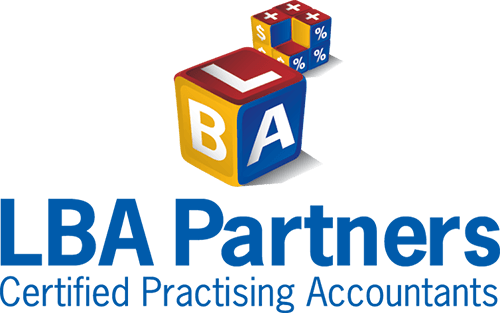P r a c t i c e U p d a t e
August 2010
Extension of Small Business Assistance Package
The Tax Office will extend the Small Business Assistance Package, which was originally intended to expire on 30 June 2010, until 30 June 2011.
The extension of the Small Business Assistance Package will mean that eligible businesses with a turnover of $2 million or less will continue to have access to:
- a 12 month general interest charge free payment arrangement with the Tax Office; and
- a deferral of activity statement payment due dates.
ATO focus on the cash economy
The ATO has released its Compliance program for 2010/11, which outlines the areas that are concerning them, including the cash economy.
The ATO is concerned about the deliberate under reporting or non-reporting of income that results from businesses using cash transactions to hide income and evade taxation obligations, including:
- skimming some or all of the cash transactions;
- running some business activities off the books;
- paying cash in hand wages (which are then not reported);
- avoiding obligations by not registering or lodging BAS and income tax returns; or
- not reporting exchange of goods or services.
The Government recently allocated $107.9 million over four years to support additional work in relation to the cash economy, which is expected to result in an additional $491.8 million in revenue over four years.
Super co-contributions update
The ATO has advised that they have begun paying delayed super co-contribution entitlements, with interest where applicable.
If a payment has been delayed, the account-holder does not need to do anything.
Interest will be paid as an additional super co-contribution amount where the ATO has delayed payment for more than 60 days.
After July, they will start reviewing all interest entitlements on super co-contributions and, if required, pay top-up amounts on accounts impacted by processing delays.
Rental property claims – avoiding common mistakes
The ATO has identified some common mistakes being made in claiming rental property agent fees and commissions.
What are property agent fees and commissions?
These are fees such as regular management fees or commissions paid to a property agent or real estate agent for managing, inspecting or collecting rent for the rental property on behalf of the owner.
They can only be claimed if they are paid to a legitimate entity or person who is genuinely managing the rental property – the best evidence are the statements the owner receives from their property agent.
Three common mistakes:
- Claiming commissions or other costs paid to a real estate agent or other person for the sale or disposal of a rental property.
- Claiming fees paid to any entity or person engaged to find a suitable rental property to purchase.
- Incorrect labelling of management fees which include a number of expenses rolled into the one amount – for example, management fees that also include cleaning costs.
Example – Agent fees for finding a rental property
ABC Enterprises is a specialist company that finds investors suitable rental properties to purchase.
Mark sees one of ABC's ads in the paper and decides to engage them to find him a rental property. ABC charges Mark $1,200 for services for the property they find, which he subsequently purchases.
Mark cannot claim the fee he pays to ABC as a property agent fee or commission deduction. However, Mark can add this $1,200 expense to his cost base, which he uses to work out the capital gain or loss when he sells the property.
Paid parental leave Bills become law
Legislation for the Paid Parental Leave scheme has been passed by Parliament.
From 1 January 2011, the scheme will provide eligible working parents with 18 weeks of Parental Leave Pay at the National Minimum Wage, currently $570 a week before tax.
Parents and employers can find out more about the scheme, its eligibility requirements and how it will operate at www.familyassist.gov.au.
SMSFs acquiring employee shares
The ATO has warned that nominating an SMSF as the acquirer of shares or options from an employee share scheme can have serious tax and superannuation consequences:
- For the individual who has nominated their SMSF, there can be penalties if the discount on the shares and options isn’t accounted for in their tax return; and
- For the SMSF, acquiring an asset from a related party can put the fund at risk of being made non-compliant and taxed at 45%.
In addition, trustees of SMSFs who intentionally acquired shares or options from related parties contrary to the superannuation law may face up to one year in jail.
Overtime meal allowance amount
The reasonable amount for overtime meal allowance expenses for 2010/11, where an allowance is paid under an award, order, determination, industrial agreement or a Commonwealth, State or Territory law, is $25.80 per meal.
First home saver accounts – rates and thresholds
Various aspects of the first home saver accounts have been changed as a result of indexation.
Account balance cap
There is an overall account balance cap on first home saver accounts, which is indexed periodically in $5,000 increments.
| Income year | Account balance cap |
|---|---|
| 2009/10 | $75,000 |
| 2010/11 | $80,000 |
Maximum annual government contribution
The government will make a contribution equal to 17% of the account holder's personal contributions for the financial year, up to a maximum that is based on a periodically indexed contribution threshold.
| Income year | Contribution threshold | Maximum government contribution |
|---|---|---|
| 2009/10 | $5,000 | $850 |
| 2010/11 | $5,500 | $935 |
Please Note: Many of the comments in this publication are general in nature and anyone intending to apply the information to practical circumstances should seek professional advice to independently verify their interpretation and the information's applicability to their particular circumstances.
Management Consulting
We have the know-how and experience to offer advice that helps you run your business more effectively.
Self-Managed Superannuation Funds
At LBA Partners we provide the professional advice you need to manage your own fund and greatly simplify the process for you.



